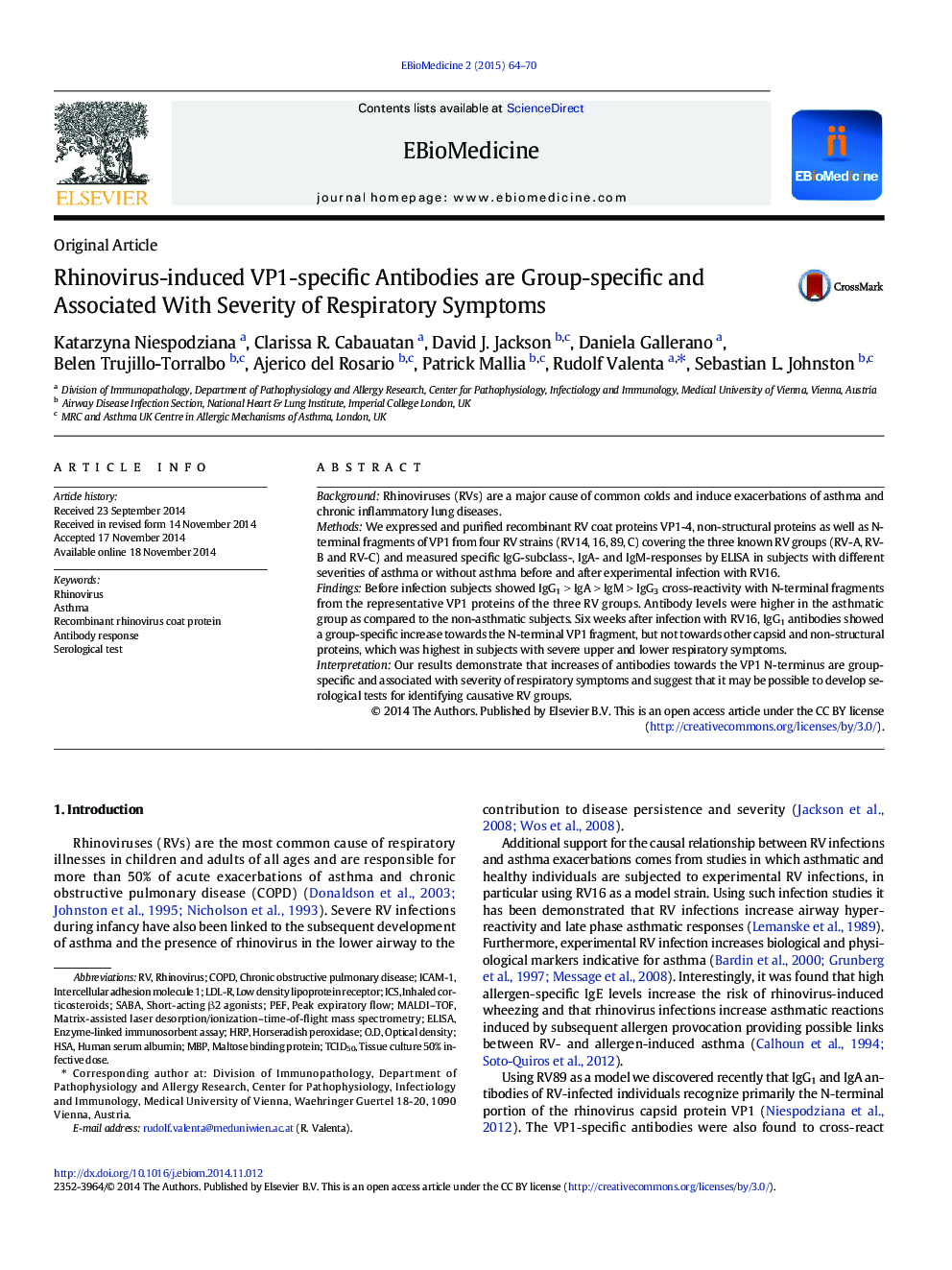| Article ID | Journal | Published Year | Pages | File Type |
|---|---|---|---|---|
| 2121277 | EBioMedicine | 2015 | 7 Pages |
•Increases of rhinovirus-specific antibodies are surrogate markers for severity of rhinovirus-induced respiratory symptoms.•Serological tests based on recombinant rhinovirus coat protein fragments identify the culprit rhinovirus strain.•Identification of the most relevant RV strains by serology should allow the rational design of RV vaccines.
BackgroundRhinoviruses (RVs) are a major cause of common colds and induce exacerbations of asthma and chronic inflammatory lung diseases.MethodsWe expressed and purified recombinant RV coat proteins VP1-4, non-structural proteins as well as N-terminal fragments of VP1 from four RV strains (RV14, 16, 89, C) covering the three known RV groups (RV-A, RV-B and RV-C) and measured specific IgG-subclass-, IgA- and IgM-responses by ELISA in subjects with different severities of asthma or without asthma before and after experimental infection with RV16.FindingsBefore infection subjects showed IgG1 > IgA > IgM > IgG3 cross-reactivity with N-terminal fragments from the representative VP1 proteins of the three RV groups. Antibody levels were higher in the asthmatic group as compared to the non-asthmatic subjects. Six weeks after infection with RV16, IgG1 antibodies showed a group-specific increase towards the N-terminal VP1 fragment, but not towards other capsid and non-structural proteins, which was highest in subjects with severe upper and lower respiratory symptoms.InterpretationOur results demonstrate that increases of antibodies towards the VP1 N-terminus are group-specific and associated with severity of respiratory symptoms and suggest that it may be possible to develop serological tests for identifying causative RV groups.
